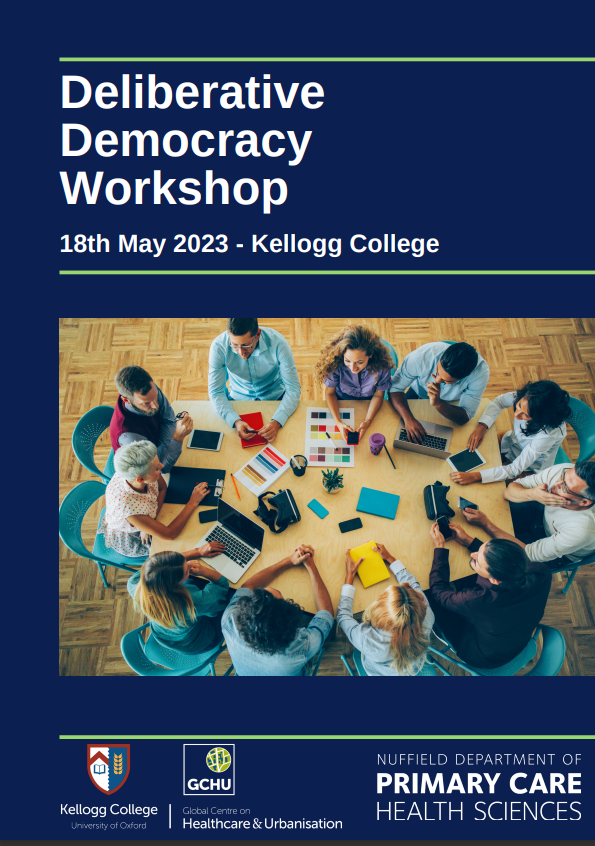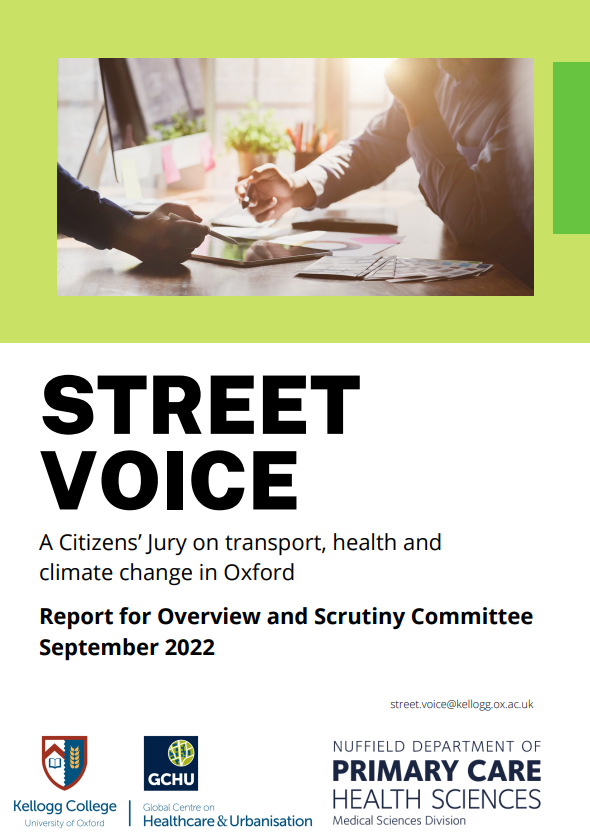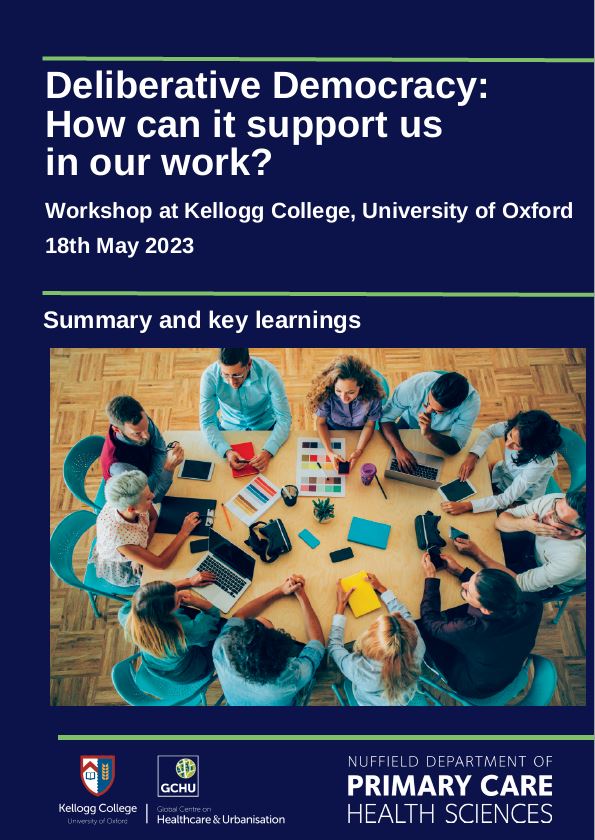Dr Juliet Carpenter
GCHU Director of Research and Senior Research Fellow
Email: [email protected]
Local authority leaders are increasingly challenged to engage meaningfully with citizens around contentious policy issues. Recent years have seen a growing mistrust of democratic institutions, and scepticism in traditional participation processes. One way to address these challenges is through deliberative democratic processes, such as citizens’ assemblies and citizens juries, in what OECD calls the ‘deliberative wave’ of innovative citizen engagement processes. Street Voice was one such process in Oxford, a citizens’ jury organised in 2022 by an interdisciplinary team of researchers from GCHU and the Department of Primary Care, in collaboration with Oxfordshire County Council, to explore issues of health, transport and climate change.
As follow-up to Street Voice, the research team was keen to maximise the learning from the process, and to raise awareness of the opportunities and challenges that deliberative democracy presents. They reached out to local politicians and council officers, to propose a workshop with the aim of facilitating dialogue and discussion amongst councillors and officers about the potential application of deliberative processes in local policy-making.
In the resultant Deliberative Democracy Workshop on 18th May, 16 elected members and officers from Oxfordshire County Council and Oxford City Council gathered for a half-day event at Kellogg College. Participants heard from a range of voices in the deliberative democracy space, including Professor Alan Renwick of the Constitution Unit at UCL, Pete Bryant, a deliberative democracy practitioner at Shared Future, and Claire Mellier, a co-initiator and organiser of the Global Citizens’ Assembly.
But participants also had the opportunity to hear from members of the public who have taken part in two deliberative processes, the Street Voice citizens’ jury, and the Oxford Citizens’ Assembly on Climate Change, which was organised by Oxford City Council in 2019. Jury and assembly members spoke compellingly about their positive experiences of being part of a deliberative process. With the conversation facilitated by Liz Goold, jury and assembly members spoke passionately of engaging with a truly diverse group of residents, the sense of agency and purpose that came with being involved in this democratic process, the potential it provided for strong and oppositional views to be understood and reconciled, and the ripple effects of involvement beyond the jury or assembly itself.
The workshop aimed to start a conversation within and between councillors and officers in both councils, together with residents of Oxford and researchers at the University, to think deeply about how to embed deliberative democratic processes into local government decision-making. The aim is to continue this conversation to consider how citizens’ juries and assemblies could be used to enhance relationships between councils and local communities, and complement existing governance and scrutiny processes.
The summary of the workshop and key learnings is available to view.



